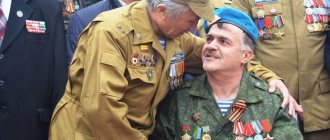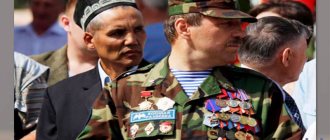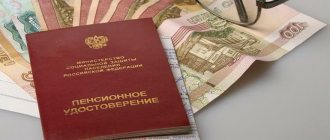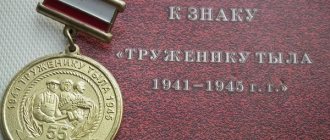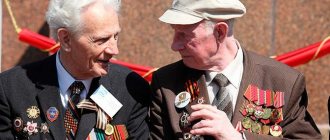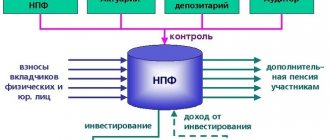Pension size for combatants in Afghanistan
As TUT.BY managed to find out, today many former military personnel who had the official status of combatants may lose it.
Their re-registration is underway in Belarus: military registration and enlistment offices carefully check the grounds that give the right to be considered veterans of local military conflicts. In order to take care of the citizens of our country who took part in hostilities, by order of government authorities, on January 12, 1995, Federal Law No. 5-FZ “On Veterans” was adopted, establishing: an insurance pension in accordance with Federal Law No. 400-FZ of December 28. 2013 military pension in accordance with the Law of the Russian Federation N 4468-1 of February 12, 1993;
Combat veterans at the Federal and regional levels are provided with a number of benefits of a social nature, as well as those related to taxation and pension issues.
Benefits for Afghan soldiers in Russia in 2020
The average processing time for an application is 15-30 days. After this time, the applicant is either awarded compensation or the application is refused. If the decision is positive, the participant in hostilities will receive monthly compensation of half the cost of rental housing.
If a Russian citizen with this social status lives in a premises registered under a social tenancy agreement, then the state pays half the cost of its rent. To receive financial compensation for renting housing under a social tenancy agreement, you should contact the Office for Social Protection of Citizens with a package of the following documents:
Pension for Afghanistan veterans: find out more
In addition, the pension for Afghanistan veterans includes the usual monthly cash payment. Now it is at the level of 2200 rubles. This payment came into force after the law replacing in-kind benefits with payments was repealed. The cost of this supplement includes the price of the so-called social package. This includes travel to and from the place of treatment, sanatorium treatment, and payment for medications.
The pension for Afghans in Russia is calculated based on the fact that one year in a hot spot is counted as 3 when it comes to length of service. In addition, a monthly supplement is added, usually amounting to 32 percent of the minimum social pension. Veterans receive at least 1,000 rubles as such an allowance.
Benefits for veterans of the Afghan war in 2020
- Cash payment received monthly.
- Social benefits - money for travel on public transport, for the purchase of medicines, for sanatoriums. But veterans can choose between money and services.
- If Afghans become disabled as a result of combat, they are also entitled to regular disability payments, and their amount has been increased since 2014.
- Medical examinations and other types of medical services are provided on a walk-in basis.
- They also have the right to treatment not only in hospitals, but also in hospitals. Upon retirement, Afghans have the right to be served out of turn.
- They can use the right to receive preferential dentures, but the only exception is dental prosthetics.
Who is a participant in hostilities in Ukraine?
- Military personnel (reservists, conscripts) and employees of the Armed Forces of Ukraine, the National Guard of Ukraine, the Security and Foreign Intelligence Services, the State Border Service of Ukraine;
- Military personnel and employees of the Ministry of Internal Affairs of Ukraine, the State Security Administration of Ukraine, the State Service for Special Communications and Information Protection of Ukraine,
- Other military formations created in accordance with the laws of Ukraine,
- Participants in combat operations during the Great Patriotic War (WWII);
- Participants in hostilities on the territory of other countries before the collapse of the USSR (in Afghanistan and other countries, for example, in Mongolia, Hungary, Czechoslovakia, Vietnam, etc.);
- Participants in international operations (for example, in Iraq, Congo) by decision of government authorities of Ukraine;
- Soldiers of the Ukrainian Insurgent Army (UPA), who fought against the Nazi occupiers;
- Participants in the anti-terrorist operation (ATO) in 2014-2019 in Ukraine.
History: from time immemorial
The British made repeated attempts to subjugate Afghanistan. Military operations in 1838-1842 (the first Anglo-Afghan War) were unsuccessful, but as a result of the war of 1878-1889 (the second Anglo-Afghan War), Afghanistan became a British protectorate. The reluctance to be under the yoke of the British led to the war of 1919 (the third Afghan war), as a result of which the 50,000-strong British army was defeated and, according to the signed peace treaty, Afghanistan received political independence.
In foreign policy, there was an orientation towards the newly organized Soviet Union, but serious conflicts were brewing within the country, which did not stop until the 1950-1960s. At this time, movements oriented towards popular democracy emerged in the country, some with a clearly Marxist slant.
The organizer and ideological inspirer of this trend was the journalist and poet Nur Mohammed Taraki, who announced on 01/01/1965 the creation of a new party - the People's Democratic Party of Afghanistan (PDPA). Due to social and financial heterogeneity, a split arose among party members: by the beginning of the 70s, two directions were active: “Khalq” (a branch with radical ideas) and “Parcham” (moderate opposition).
The change in the form of government from a monarchy to a republic (1973) had virtually no effect on the relationship between Afghanistan and the USSR. Over the next 5 years, the government led by Prime Minister Mohammed Daoud made attempts to modernize industry, but the dictatorial style of government displeased members of the PDPA. The turning point was the assassination of the Prime Minister on April 28, 1978 - after this event, a regime akin to the Soviet one was established in Afghanistan, and the country was headed by the General Secretary of the PDPA Central Committee, Nur Muhammad Taraki.
Pensions for combatants
According to Art. 6 of Law No. 3551, civilian personnel of the Armed Forces, troops and bodies of the Ministry of Internal Affairs and the KGB of the USSR, who held regular positions in military units, units, headquarters and institutions that were part of the active army during the Great Patriotic War and other periods of combat operations, are classified as participants in hostilities.
If they have the required insurance experience (35 years for men and 30 years for women), the pension for such persons cannot be less than the minimum amount established at the level of the subsistence level established for persons who have lost their ability to work. If the insurance length of these persons exceeds 35 and 30 years, respectively, then an additional payment is established for the excess length of service.
List of benefits for Afghans and the procedure for applying for them
- A tax deduction of 500 rubles, which is accrued when a citizen pays personal income tax. If a veteran is recognized as disabled due to combat, the amount of the deduction increases to 3 thousand rubles.
- Exemption from paying state fees when filing a claim in court as a plaintiff.
- Reducing the tax base for land owned by a citizen by 10 thousand rubles. An Afghan has the right to take advantage of this benefit only in relation to one piece of real estate.
Benefits for Afghans in 2020 also include benefits in the event of the death of a veteran. The relatives of the deceased are paid monetary compensation for preparing the body for burial and transporting it to the cemetery. Various benefits are also provided to widows of veterans of combat operations in Afghanistan. If a participant in combat operations in Afghanistan continued to serve in the Russian Armed Forces, then he is entitled to military honors at the funeral.
Pension for combatants in Afghanistan
- Persons who participated in the Great Patriotic War, including home front workers and residents of Leningrad during the war.
- Veterans of military service.
- Labor veterans.
- Veterans of other conflicts on the territory of the Russian Federation (USSR) or third countries: in Chechnya or Afghanistan.
- Veterans awarded medals and orders during the state civil service.
After changes were made to the Federal Law on Veterans regarding military personnel who served in combat areas in Chechnya in 1994 -1996, they were given the status of veterans. Based on the legislation, it became possible to calculate benefits and additional payments for former military personnel, taking into account their ranks and awards, and for participants of military operations in Chechnya who became disabled to receive pensions.
Benefits for veterans of the Afghan war in 2020
- providing free housing at the expense of federal budget funds to those veterans who need improved housing conditions. The condition for receiving the benefit is registration as a veteran before 01/01/2005. The remaining veterans are provided with housing in accordance with the general procedure, in accordance with the housing legislation of the Russian Federation;
- reimbursement of 50% of costs for housing and communal services;
- installation of a landline telephone out of turn.
- examinations and other medical services are provided on a walk-in basis;
- undergoing treatment both in hospitals and hospitals, and when they reach retirement age, Afghans are treated out of turn;
- obtaining prostheses, with the exception of dental ones. Moreover, if the prosthesis was purchased and installed by a veteran at his own expense, then the state provides compensation for these costs;
- spa treatment for medical reasons.
Combatants
Participants in hostilities are persons who took part in combat missions to defend the Motherland as part of military units, formations, associations of all types and branches of the Armed Forces of the active army (navy), in partisan detachments and underground and other formations, both military, and in peacetime.
6) Special employees formations of the People's Commissariat of Railways, the People's Commissariat of Communications, the People's Commissariat of Health, the floating composition of fishing and transport vessels and the flight-lifting personnel of the aviation of the People's Commissariat of the Fishing Industry of the former USSR, the sea and river fleet, the flight-lifting personnel of the aviation of the Main Directorate of the Northern Sea Route, transferred to period of the Great Patriotic War on the position of persons serving in the ranks of the Red Army and performing tasks in the interests of the army and navy within the rear boundaries of active fronts or operational zones of active fleets, as well as crew members of transport fleet ships that were captured in the ports of Nazi Germany on June 22 1941.
Pension for combatants
Who is a veteran? VBD are former career military personnel, conscripts who served, carried out combat missions, took direct part in military operations on behalf of the authorities and eliminated the consequences of military operations that took place on the territory of the Russian Federation and outside the country.
- 1 Who is a veteran?
- 2 Legislative framework
- 3 What pensions can be accrued under UBI?
- 4 Conditions for calculating the UBD pension
- 5 Features of calculating military benefits UBI
- 6 Features of calculating UBD insurance benefits
- 7 32% premium what is it?
- 8 Veteran's pension in 2020, is there an increase coming?
- 9 Increase in EDV
- 10 Social package
- 11 Reader questions
The withdrawal of Soviet troops from Afghanistan: how it happened
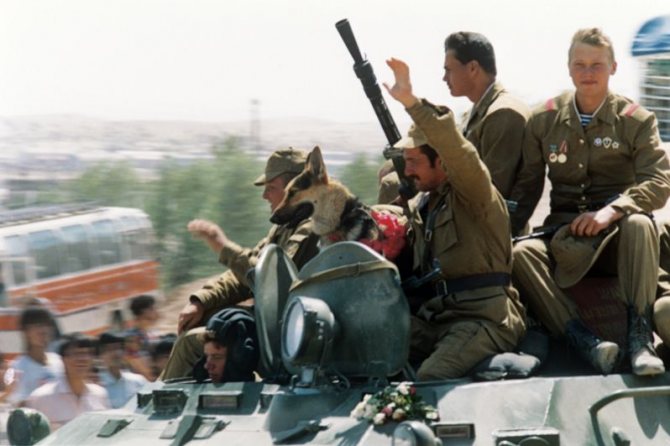
May 15, 1988. The gradual withdrawal of a limited military contingent of Soviet troops from Afghanistan began. RIA Novosti / V. Kiselev
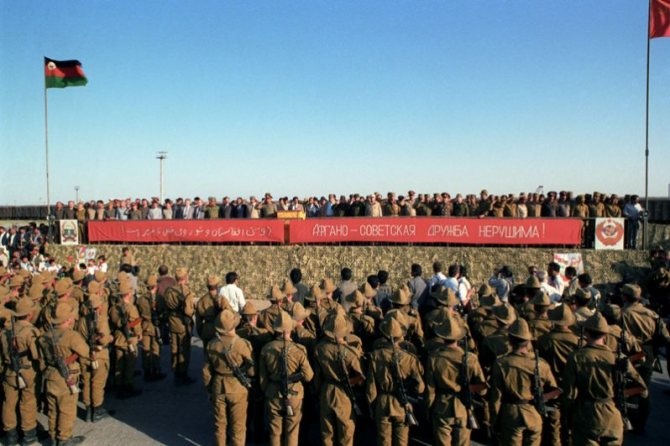
Rally of Afghan-Soviet friendship. The beginning of the return of Soviet troops from Afghanistan. RIA Novosti / Lulishov Solomon
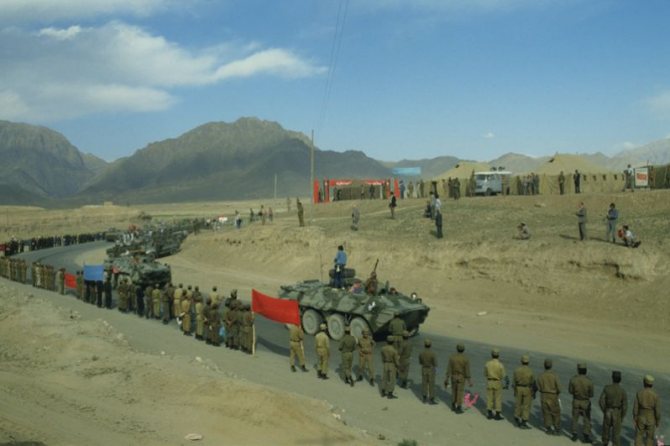
The first column of a limited contingent of Soviet troops departs for their homeland. RIA Novosti / Lulishov Solomon
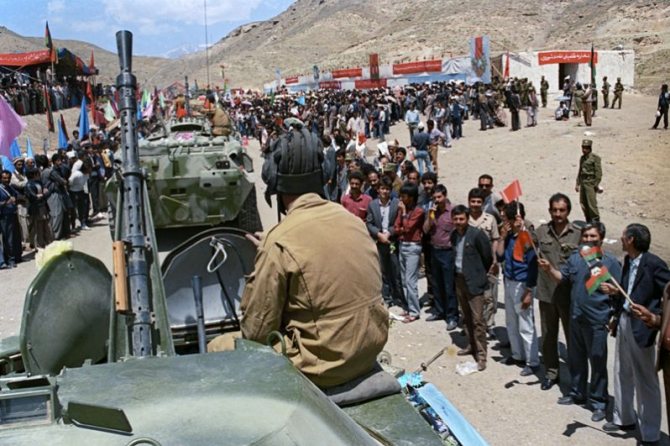
Residents of Afghanistan see off Soviet internationalist soldiers. RIA Novosti / Lulishov Solomon
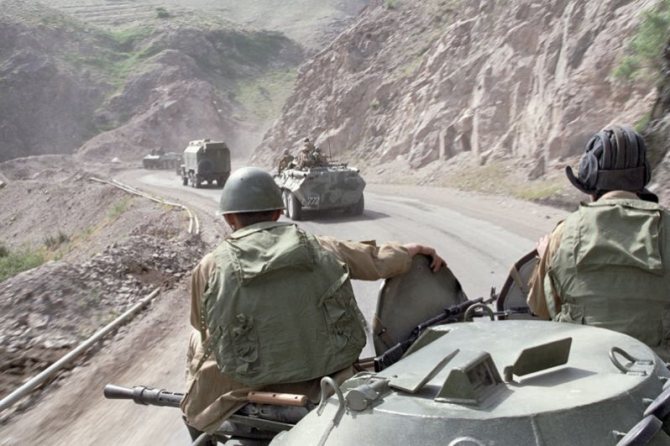
Soviet soldiers return from Afghanistan to their homeland. Road through Salang. RIA Novosti / Lulishov Solomon
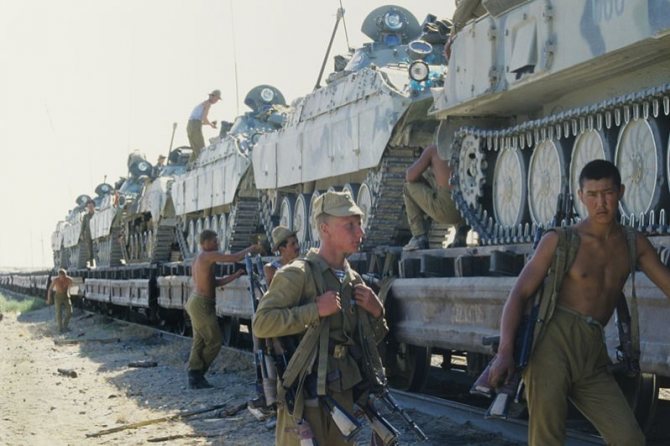
Loading military equipment on a railway platform in Termez (Uzbekistan). RIA Novosti / V. Kiselev
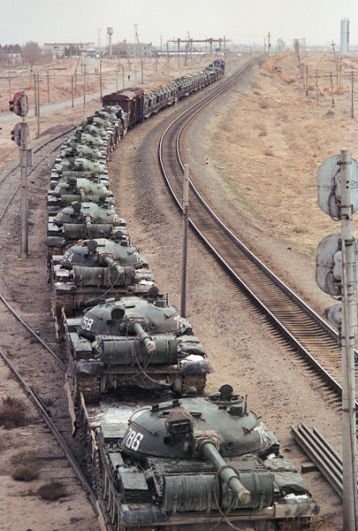
A train with military equipment is sent into the interior of the country. RIA Novosti / V. Kiselev
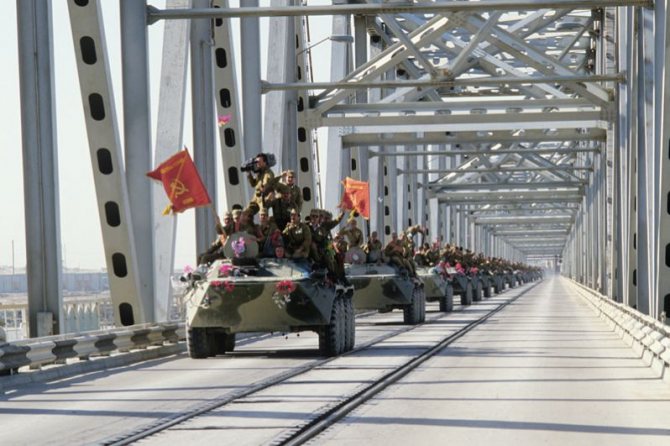
A column of armored vehicles crosses the Afghan-Soviet border along the Friendship Bridge over the Amu Darya River. RIA Novosti / V. Kiselev
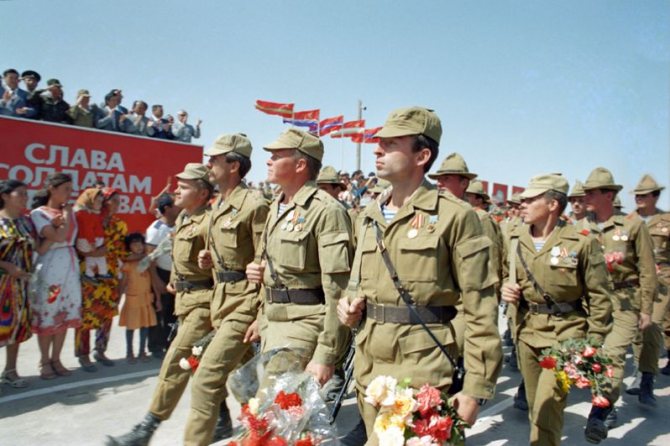
Internationalist soldiers of the limited contingent of Soviet troops withdrawn from Afghanistan march in ceremonial formation in front of the assembled residents of the city of Termez in Uzbekistan. RIA Novosti / V. Kiselev
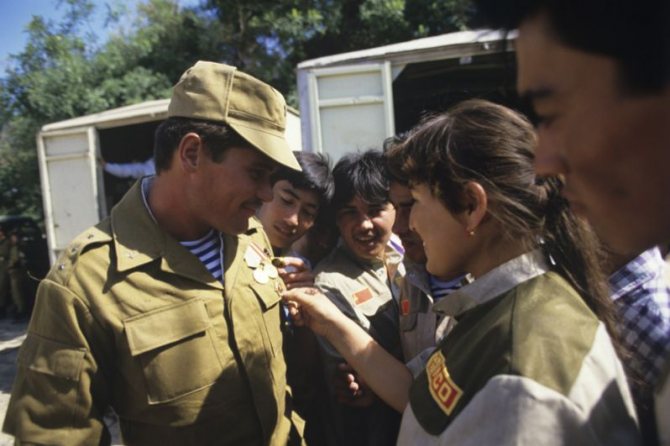
Soldiers returning from Afghanistan are greeted by relatives and friends in the city of Termez. RIA Novosti / V. Kiselev
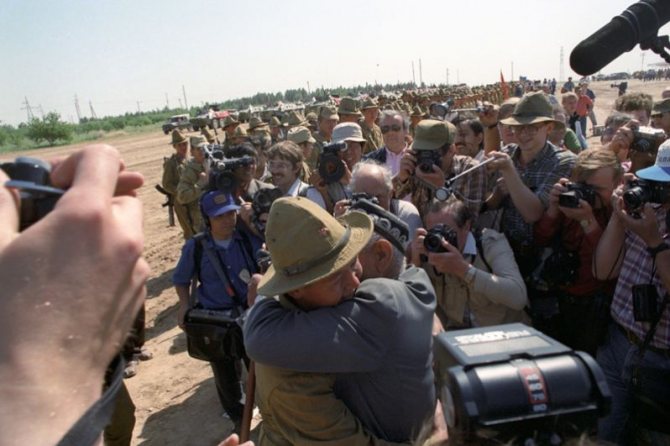
Arrival of soldiers returning home to Termez. RIA Novosti / V. Kiselev
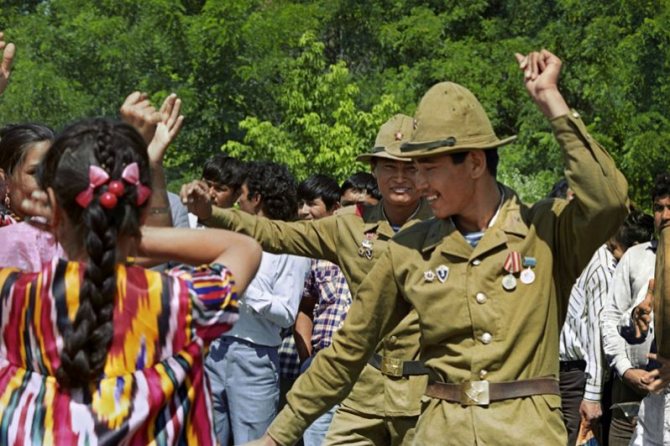
Celebration in the city of Termez on the occasion of the return of Soviet internationalist soldiers from Afghanistan. RIA Novosti / V. Kiselev
Features of pensions for combatants in Afghanistan
According to this legislative act, citizens who took part in hostilities in Afghanistan are not included in any of the categories of persons who are entitled to early retirement. Those. age for them is calculated on a general basis. For men it is 60 years, and for women 55 years.
Employees of the Pension Fund, when assigning benefits to Afghan soldiers, use the same scheme that is used to calculate pensions for WWII veterans. The only difference is when calculating length of service. If a citizen served in Afghanistan from 1979 to 1989, then 1 year is counted as 3.
Retirement age for internationalist soldiers
In the Russian Federation, internationalist warriors are considered:
- participated in the Afghan war;
- military personnel ensuring the safety of Russian citizens in Abkhazia and South Ossetia (2008);
- served in Syria (since 2020).
For internationalist soldiers and former conscripts, the possibility of early retirement has not been introduced. Professional military personnel apply for it based on their length of service. Their service life must be at least 20 years. For participants in the Afghan war, it is calculated according to a special scheme: 1 year of service in Afghanistan is equal to 3 years of total service.
Russian Pension Fund
Every month, DB participants are paid EDV - a form of social support. Every year it increases based on inflation. In 2020, the EDV was 2,465 rubles. In 2020 it increased to 2780 rubles. From February 2020, they promise to index the payment by 3.2%, and veterans will receive 2868 rubles .
Participants in military operations in Afghanistan are exempt from paying property taxes. They reduced the tax base for land. There are discounts on transport, but their size is determined in each region independently (in some for VBD it is zero, but for one car with a capacity of no more than 200 horsepower). In some places the discount reaches 50%, while in other regions this benefit does not apply at all. For clarification and, if a benefit exists, registration, you need to contact the tax office.
“Forget about the good things!”
“At work, I have to communicate with former Mujahideen,” says Vyacheslav Nekrasov, director of the Russian Center for Science and Culture in Afghanistan . “I say: it’s clear that you considered us enemies, “infidels,” and attacked our soldiers. But I saw with my own eyes how Soviet engineers erected stadiums, built highways, educational institutions, enterprises, imported breeding stock, seeds for sowing, and the latest agricultural equipment. Everything was absolutely free - for the people of Afghanistan. Why did you burn, blow up, destroy, destroy exactly this? What prevented you from the fact that the poorest farmers will have enough to eat, and your children will study in modern schools? I never get an answer. The Mujahideen are silent and avert their eyes. Yes, the Soviet Union made serious mistakes. Personally, I believe that such a large-scale transfer of troops of the 40th Army in 1979 to Afghanistan without timely convincing preparation of both the DRA population and the international community led to a sharp increase in negative sentiments among Afghans, actively fueled by our “sworn friends.” However, the economic assistance provided was enormous, and now most Afghans speak of this with deep gratitude.
Article on the topic
Roads, factories, gas pipelines. What the USSR built in Afghanistan
By the way, the Center for Science and Culture of the Russian Federation itself was built anew - after capturing Kabul, the Mujahideen left the building in ruins. In general, three quarters of the facilities built by the Soviet Union as a gift to the Afghan people were destroyed on the territory of Afghanistan. Now the former “jihad warriors” are clutching their heads - why did they do this, because with their own hands they drove an industrialized state into the Stone Age! For example, in Jalalabad in 1979–1989. Due to the special, mild climate of this region, with the help of agronomists from the USSR, olives, tangerines, and grapes were grown and supplied even to Europe. Now the production is barely enough for the needs of Afghanistan, and even then not everywhere - there are minefields in place of the greenhouses. “Where do tangerines come from?” - I ask the fruit seller in .
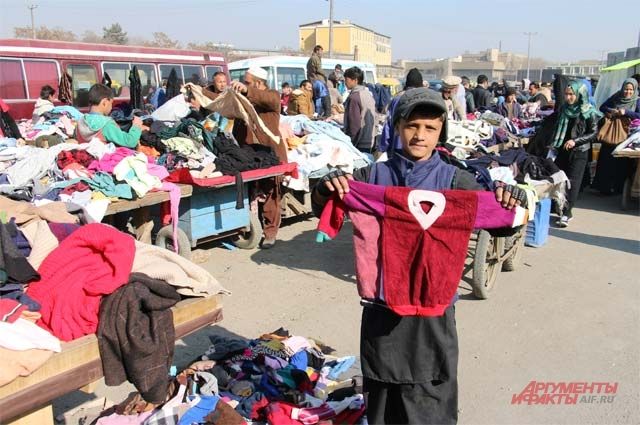
Satan's Bazaar. AiF photo report from the streets of Kabul Read more
